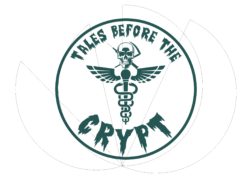Another of the horrible diseases that affect our brain is Parkinson’s. Although statistically considered by medicine to be rare, as we live longer lives we are seeing more of it. My story and discussion of this devastating neurological disorder that affects some of my patients is below. This heartbreaking problem affected one of my own relatives years ago but I was too young to understand what she had.
Rarely seen in young folks, this usually affected people in the later years of life. Some will have fine tremors noticed at first, followed by a changing landscape of physical and mental disability. There seems to be no dominance among male or female. Some believe genetic factors are at play but nothing definite at this point. Also environmental exposures have been thought to be a factor. Bottom line; The brain becomes deficient in dopamine, one of the main brain chemicals that allows processes to take place. However complicated one can make it, it doesn’t really matter. The brain is once again short-circuited and begins to become inflamed and cannot control muscular activity and mental acuity. It is a slow but predictable killer.
Let’s start with Babs. She is a patient of mine that when I first met had been having mental acuity problems and could not function alone in her home. Unfortunately as is the case with so many of these ladies, she had no family that was able to care for her, no spouse (she out-lived him) and had to have a court-appointed guardian. When I first met her she could communicate with me, but had poor short term memory. (couldn’t remember her hospital visit or much about yesterday).
Babs could feed herself, move about without difficulty and was not someone that had any behavioral disorders that I could tell. I proceeded to see her on a regular basis and took care of her blood pressure, cholesterol and depression with medications. She was getting along just fine in her group home.
As the visits progressed, I noticed a fine tremor mostly in her Left hand, and her memory was worsening. This could be just a familial tremor (a benign form not to worry) but now it has progressed to both hands and she cannot control it. Over the past year she has lost her ability to stand from a seated position and get up out of her chair unassisted.

Next comes worsening dementia. No, not the kind where you forgot where you parked your car and later found it using the panic alarm on your key fob. Those typical “brain farts” or “senior moments” happen to all of us at times. More telling is if you cannot find your way home or to some other location that you have been visiting many times before.
A mental status exam was performed with Babs and she scored only 5 of 30 total points. This exam is common and can be found online. It’s of the type politicians are currently talking about taking due to their age. A score of 5 is devastatingly ominous; severe incapacitation. Sometimes even simple tasks become too challenging or frustrating. You can see the frustration in Bab’s eyes, the depression. It is heartbreaking to watch. I have seen the progression over the past year. Could it be Alzheimer’s? Perhaps, but most Alzheimer’s patients can move about fairly well.
Rigidity of the extremities has become obvious. Bending to sit and stand, picking something up off the floor difficult if not impossible now. A term called “cogwheeling” is also present now. This is when an arm is straightened then flexed back but not without resistance and jerking such as the wheels on a gear.
The body of a Parkinson’s patient typically is rigid. Medications can sometimes help relax the muscles but only to a certain extent and yes, there are always side effects. Hallucinations are common. Keeping them moving is also helpful. Fall risk is high and in time these folks require full care and become wheelchair-bound.

Which mask will she wear today?
So back to today’s title, the mask. Parkinson patients will eventually lose expression, a condition termed flat affect with be present. Voice may be affected or even sometimes change along with swallowing difficulty that presents a whole other challenge. Watching Bab’s go through the phases of this disease is from a medical perspective a fairly textbook case. In my practice however, I see these folks fairly regularly and to watch the progress is depressing. The fear we all have about losing our minds is real. Losing movement, expression, smile and ability to sit and stand is the physical part of this double-whammy. Could it be Alzheimer’s also? Possibly. Believe it or not there are some that can be afflicted by both. Alzheimer’s with Parkinsonian features. Good golly, time to take a break and be thankful I can write these blogs. Before a “mask” sets in.

